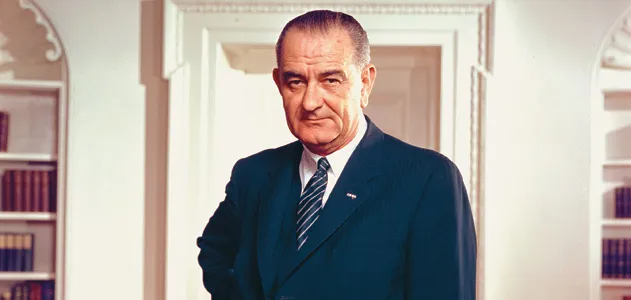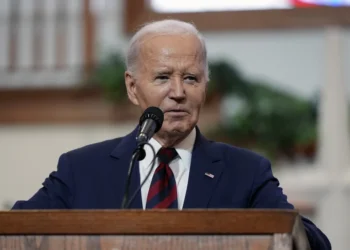
It was the age when administrations had slogans: Franklin Delano Roosevelt had the New Deal, Harry S. Truman the Fair Deal, and John F. Kennedy the New Frontier. Lyndon B. Johnson, not to be outdone, proclaimed that his administration would create the Great Society. In pursuit of that, in his State of the Union address on January 8, 1964, only six weeks after he had become president upon Kennedy’s assassination, Johnson proclaimed: “This administration today, here and now, declares unconditional war on poverty in America.” It was one of the biggest mistakes any American president ever made, and its damaging effects are still with us today.
Johnson proposed a broad range of social programs to accomplish this, including youth employment legislation, food stamps, expanded minimum wage laws, health insurance for the elderly, and housing and urban renewal programs. Much of this ambitious program was enacted and implemented. Federal spending rose to levels that had not been seen since World War II, and continued to rise ever after. Many of Johnson’s programs, although the nation had gotten along without them from 1776 until the mid-1960s, became, in the framing of Democrat propagandists, sacred rights that could never and must never be questioned.
Despite its sacred status in leftist mythology, however, the War on Poverty was a catastrophic failure. It has been a gargantuan exercise in applying the wrong solution to problems and only making them worse rather than solving them, yet the Democratic Party to this day is full of leaders who refuse to admit that it has been a defeat and a disaster and keep pushing to repeat its mistakes on an even larger scale.
The War on Poverty has cost American taxpayers over $22 trillion since 1964, over three times the cost of all the actual wars that the U.S. has ever fought. All that has resulted from it, however, is urban blight, nagging minority unemployment, and above all, more poverty.
Poverty levels were falling sharply before Johnson declared war on poverty; in 1950, 32 percent of Americans were considered to be living below the poverty line. By 1965, when the War on Poverty was just getting started, the poverty level had been cut nearly in half and was down to 17 percent. But by 2014, after trillions had been spent in the War on Poverty, it was at 14 percent, nearly the same as it had been when the War on Poverty began.
The War on Poverty failed because it ignored a basic law of economics: if you pay for something, you’ll get more of it, not less. As the government expanded welfare programs that subsidized food, housing, and health care for the poor, it got more poor people, not fewer, as the Johnson administration had created an economic incentive to remain poor.
The Great Society ended segregation in the South and replaced it with nationwide programs that were even worse for the poor, as they took away incentives to work and created a permanent unemployed underclass in which an ever-larger group of people were essentially wards of the state.
That may have been the idea all along. The famously coarse Johnson is said to have boasted about the Civil Rights Act of 1964: “I’ll have those ni**ers voting Democratic for two
hundred years.” Between that act and the War on Poverty, he certainly did create a bloc of black Americans who could be counted on to vote Democratic so as to keep the free benefits flowing. Whether or not those votes were in the best interests of those who cast them was highly debatable, but they did contribute mightily to the perpetuation and expansion of the welfare state.
Between the New Deal and the Great Society, Franklin Roosevelt and Lyndon Johnson changed the idea of all too many Americans regarding what government was supposed to do. The welfare state they created has accustomed many people to think that the federal government exists to solve their every problem, and that everything that goes wrong in their lives must be set right by federal authorities. After decades of this corrosive nonsense, much more is needed than just a massive rollback of wasteful, unnecessary and counterproductive welfare state programs, although that is indeed urgently needed. What is needed is a massive educational effort to reintroduce Americans to the reality of why they should want less government, not more. But whether the will to mount such an effort even exists in America today remains to be seen.
















